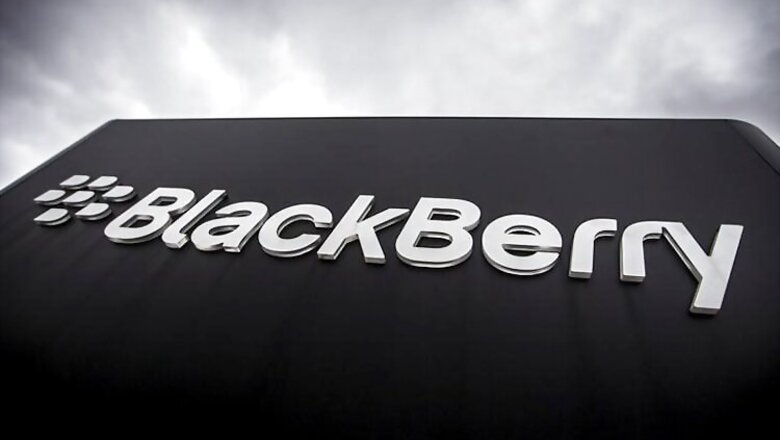
views
Toronto: BlackBerry's pivot to software began to show traction on Friday, after the company reported a smaller quarterly loss and its first quarter-to-quarter revenue increase in over two years, sending its stock soaring 13 per cent.
Significantly, gains in software revenue more than offset a steepening decline in legacy system access fees for the first time, and the Waterloo, Ontario-based company said this trend should continue.
The company may break even in the current quarter, but this could be complicated by investments being made toward growing both software and hardware sales, said Chief Executive John Chen, who sees a return to sustainable profitability in fiscal 2017, which begins March 1.
BlackBerry has staked its turnaround on software and more aggressively licensing its trove of patents after its once-dominant handsets conceded the consumer smartphone market.
"BlackBerry hit a software number that investors have been looking for them to hit for quite some time," said Morningstar analyst Brian Colello. "I think the investment in security, in software, is the right move."
The better-than-expected results were driven by a sharp jump in software and patent licensing revenues and a higher average selling price for phones, driven by the Priv, its new Android-powered device.
"We're planning on other Android phones, but it all hinges on how we do with the Priv," said Chen at a media roundtable, adding the Priv will be hitting over 30 countries this quarter.
Chen, who sees the hardware business possibly turning the corner this quarter, said BlackBerry is open to licensing some of its proprietary software features.
"I've said that if we cannot make money we're going to get out of the phone business, and I mean hardware. We have tons of software that absolutely could run, not only on Android phones, but Apple and Windows phones too," said Chen.
"We will remain in the phone business one way or the other," said Chen, stressing that ideally he would like to keep making devices and licensing at the same time.
Quarterly results
In the quarter ended November 28, BlackBerry reported a loss of $89 million, or 17 cents a share. That compared with a year ago loss of $148 million, or 28 cents a share.
Excluding restructuring charges and other one-time items, the company posted a loss of $15 million, or 3 cents a share.
Quarterly revenue fell 31 percent to $548 million from a year earlier, but rose 12 per cent from the prior quarter, after nine consecutive quarters of declines.
Analysts, on average, expected BlackBerry to post a loss of 14 cents a share on revenue of $489 million.
Software revenue more than doubled in the quarter, putting BlackBerry within striking range of its $500 million target for the fiscal year ending February 29, 2016.
Device sales also rose for the first time in four quarters to $214 million from $201 million in the second quarter on the back of the Priv.
BlackBerry sold 700,000 devices, down from about 800,000 in the prior period, but average selling prices jumped to $315 from $240.




















Comments
0 comment